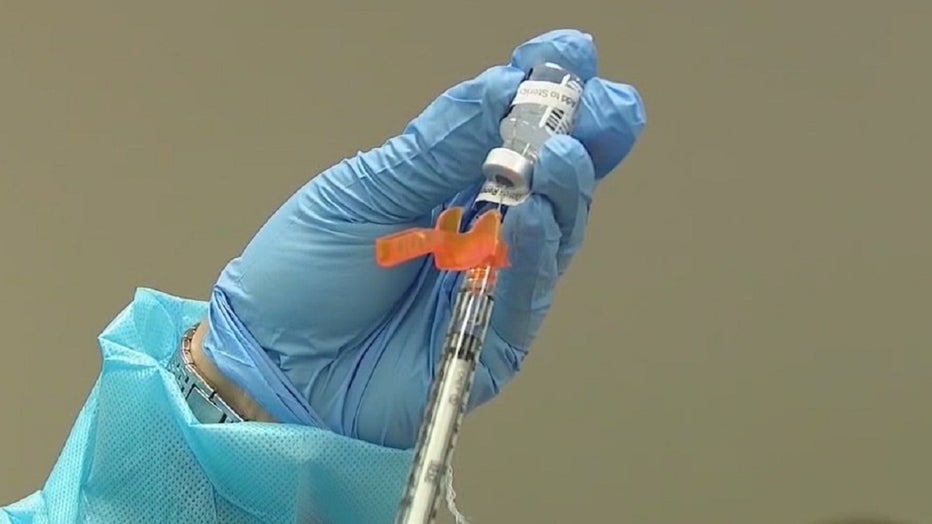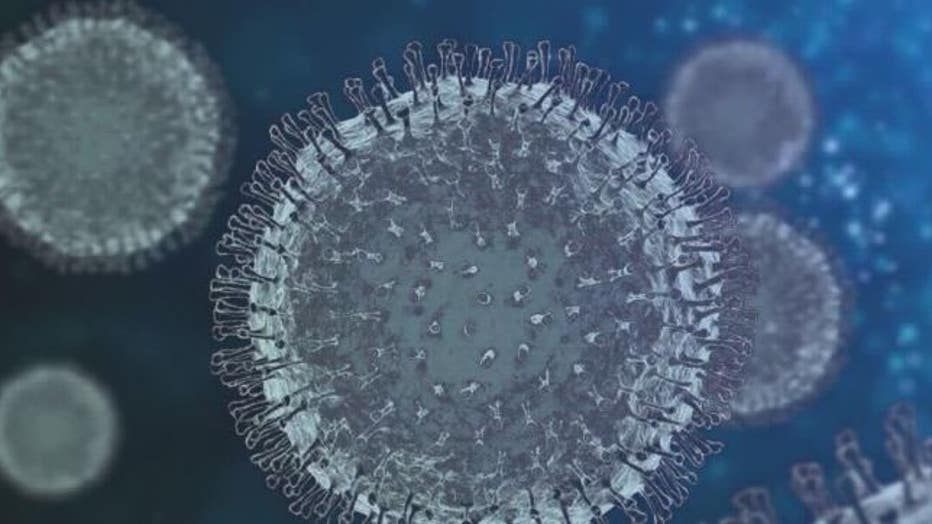Hospitalizations, confirmed COVID-19 cases spike in Georgia as omicron variant becomes dominant

Omicron variant surges during busy travel season
Infectious disease experts urge Americans to get vaccinated and receive booster doses. It's safe for fully vaccinated individuals to travel while wearing a mask, experts say.
ATLANTA - The number of patients hospitalized with COVID-19 has risen almost 50% in Georgia in the last month, and the number of infections detected continues to accelerate.
CDC DATA: OMICRON NOW DOMINANT COVID-19 VARIANT IN US
More than 1,200 patients were hospitalized statewide Monday with the respiratory illness. That’s well below the record of roughly 6,000 that was reached in early September at the peak of Georgia’s fourth surge of virus cases. But it’s well above the recent low of 824 patients recorded on Nov. 22.
"We are fortunate that our cases are relatively low right now in south Georgia, but based on what is happening all across the country, we do not expect that to last long, Scott Steiner, CEO of Albany-based Phoebe Putney Health System, said in a Friday statement. "We strongly encourage all eligible individuals to receive a COVID vaccine and booster shot, and please be cautious as you travel and gather over the holidays."
What's different about the omicron variant wave in Georgia?
Mercer University microbiology professor Dr. Amber Schmidtke, Ph.D., said this time things are a bit different.
"What's different about this surge is that whereas past surges have largely spared the Atlanta metro due to more robust public health policies, this time Atlanta leads the surge for cases," Dr. Schmidtke tweeted.
The Georgia Department of Public Health reported the biggest gain in cases was in Atlanta and the suburbs just northwest of the city. This is in sharp contrast to the delta wave over the summer, Dr. Schmidtke said that saw most cases begin in south Georgia.
"Not only are cases rising sharply, but the state's ability to measure the size of the problem is rapidly deteriorating," Scmidtke said.
The doctor notes that there test positivity is greater than 10% for PCR test and saw a significant jump over the weekend. The GDPH reported nearly 8,000 new confirmed cases over the weekend, averaging out to about just over 2,500 new cases each day for the last three days. That number has nearly doubled in a week and is more than triple the recent low of early November.
The spike brings the 7-day average to just over 2,100, numbers not seen since the end of the first week of October.
GEORGIA COVID SURGE RAISES CONCERNS ABOUT HOLIDAY TRAVEL

Omicron variant news update with Dr. Neil Winawer
Emory University's Dr. Neil Winawer gives an update on the surge of COVID cases caused by the omicron variant, the CDC's new vaccine guidance, and more.
Can Georgia's hospital handle the omicron variant wave?
Among those who have tested positive is Atlanta-mayor elect Andre Dickens. He said a rapid test Monday shows he has COVID-19 and he is isolating, although he reports feeling well and having mild symptoms. Dickens, who said he is fully vaccinated, said he’s awaiting the results of a more accurate molecular test and urged anyone with whom he’s been in contact recently to get tested and quarantine.
Intensive care unit bed usage has been basically flat in the range of 2,400 a day for the last six weeks, a number that includes all illnesses and not just COVID-19. That’s about 82% of statewide capacity.
COVID-19 patients who are hospitalized remain overwhelmingly unvaccinated. At the four-hospital Northeast Georgia Health System based in Gainesville, 83% of hospitalized COVID-19 patients were unvaccinated on Sunday, as was every single COVID-19 patient in an intensive care unit.

How are Georgia's vaccination efforts?
Georgia ranks sixth-lowest among the states, with 50.4% of its population vaccinated, according to the U.S. Centers for Disease Control and Prevention Data. Everyone 5 and older is eligible to be vaccinated in Georgia.
CDC officials said Monday that cases of the omicron variant now make up more than 90% of new infections in the Southeast, displacing the once-dominant delta variant.

What do we know about the omicron variant?
Much about the omicron coronavirus variant remains unknown, including whether it causes more or less severe illness. Scientists say omicron spreads even easier than other coronavirus strains, including delta, and it is expected to become dominant in the U.S. by early next year. Early studies suggest the vaccinated will need a booster shot for the best chance at preventing an omicron infection. But even without the extra dose, experts say vaccination still should offer strong protection against severe illness and death.
WATCH: FOX 5 NEWS LIVE COVERAGE
The Associated Press contributed to this report

